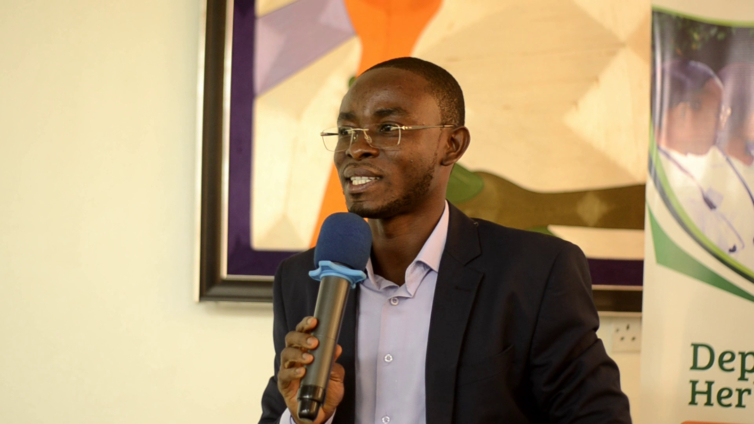Herbal Medicine Practitioner, Dr. Ebenezer Agyemang, is alarmed at the heavy metal concentrates found in herbs sourced from mining areas.
Already, some herbs and plants used as medicine are going extinct due to deforestation, mainly caused by illegal miners.
Founder of Ebenage Herbal Production, Dr. Agyemang observed growth in the herbal industry may slow down if the phenomenon persists.
“These are contaminants that are so toxic to the vital organs. The plants may be effective for consumption and medicinal purposes but due to the accumulation of these heavy metals like cyanide and mercury they will not be safe for consumption”, he said.

Dr. Agyemang addressing students of Herbal Medicine Department of the Kwame Nkrumah University of Science and Technology further revealed, “The rate of contamination is on the rise, if we don’t do anything about it now, we may be importing organic medicines free from contamination or we may be buying them at higher price”.
The World Health Organization (WHO) estimates that about eighty percent of people in the developing world depend on traditional medicine to meet their primary healthcare needs, further projecting the global market for herbal products will be worth US$5 trillion by the year 2050.
In Ghana, it is estimated 951 tons of crude herbal medicines were sold at Ghana’s herbal markets in 2010, with a total value of around US$7.8 million.
From the statistics, the relevance of herbal medicine remains enormous but the surge in illegal mining has caused deforestation leading to decreasing raw materials for industry players.
As the country continues to lose forest cover to illegal mining, herbal medicine practitioners are being encouraged to consider the cultivation of medicinal plants.
Dr. Agyemang wants the government to step up fights to halt illegal mining.
“We need to get measures in place now else the future will not be bright for the nation”, he emphasized.
Meanwhile, the forum which was to launch a research support fund dubbed “Hepa Plus Research Awards” also highlighted the potential for students to gain employment after their study.
Head of Department at the Herbal Medicine Department of KNUST, Prof. Isaac Kingsley Amponsah explains, "we have people who do not know how to write plant names, left alone to pronounce them but they are making it big in this field."
Latest Stories
-
Ukraine’s Grain Initiative raises over $200m, provides lifeline amid global food crisis
47 mins -
Dancehall queen Spice donates to students of 3 basic schools in Accra through MYO Global Foundation
55 mins -
Kamal-Deen Abdulai urges Nanton to help NPP break the 8
1 hour -
TVET is not a dumping ground for underperforming students – C/R Minister
1 hour -
BoG Governor calls for increased preparedness to respond to emerging financial sector challenges
2 hours -
IGP calls on public to aid Police in ensuring peace during 2024 election
2 hours -
Miner jailed, fined for stealing motorbike worth GH¢13,500
3 hours -
Dozens killed in Pakistan sectarian violence
3 hours -
Police place GH₵20K bounty on group over election violence threats
3 hours -
From classrooms to conservation: 280 students embrace sustainability at Joy FM/Safari Valley’s Second Eco Tour
4 hours -
Jordan Ayew’s late goal not enough as Leicester lose at home to Chelsea
4 hours -
Global Crimea Conference 2024: Participants reject Russian claims to Soviet legacy
4 hours -
Jospong Group, Uasin Gishu County sign MoU to boost sanitation services in Kenya
4 hours -
Thomas Partey stunner helps Arsenal overcome Nottingham Forest
4 hours -
Over half of cyber attacks in Ghana, rest of Africa target government and finance, says Positive Technologies
4 hours

